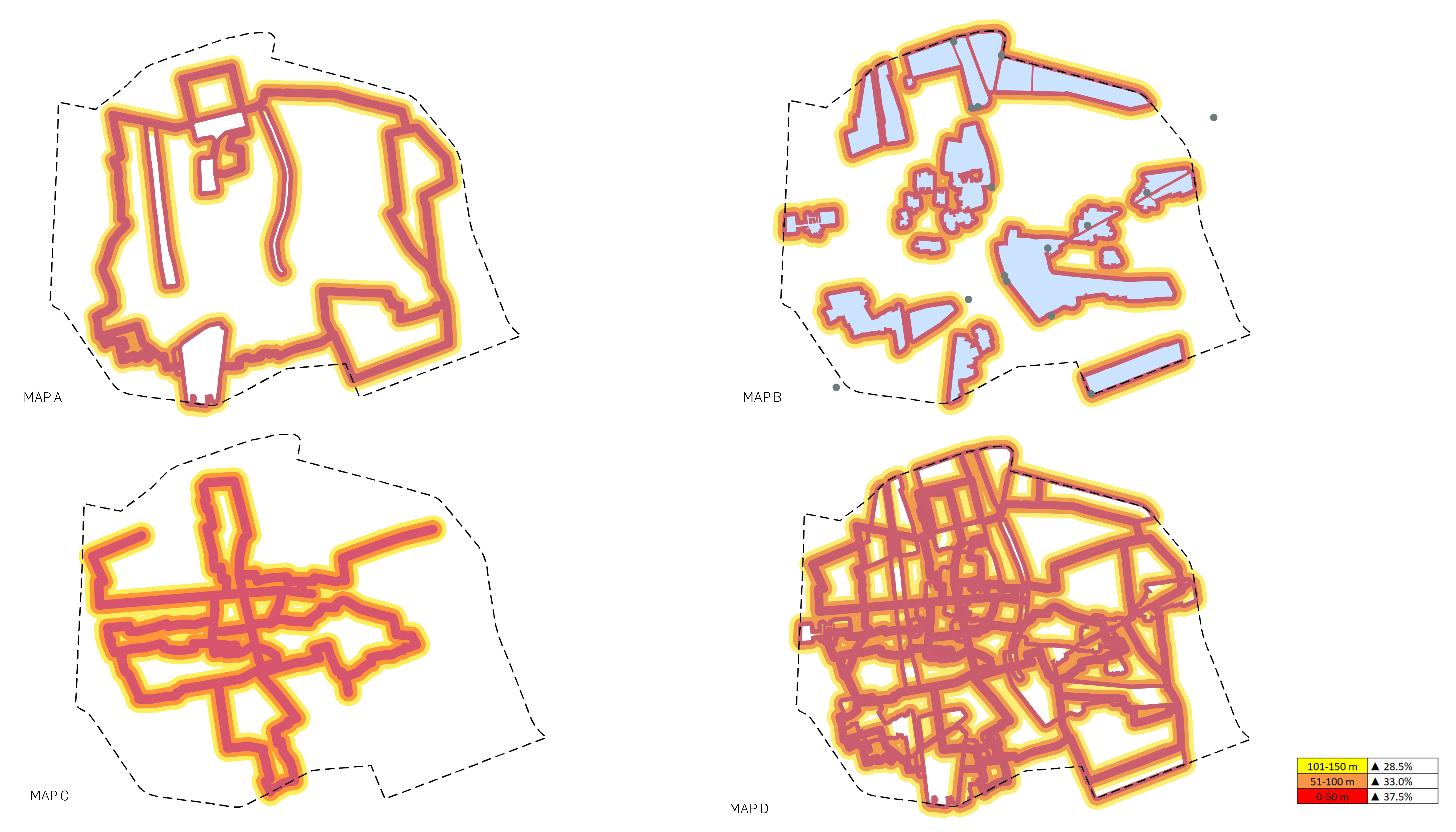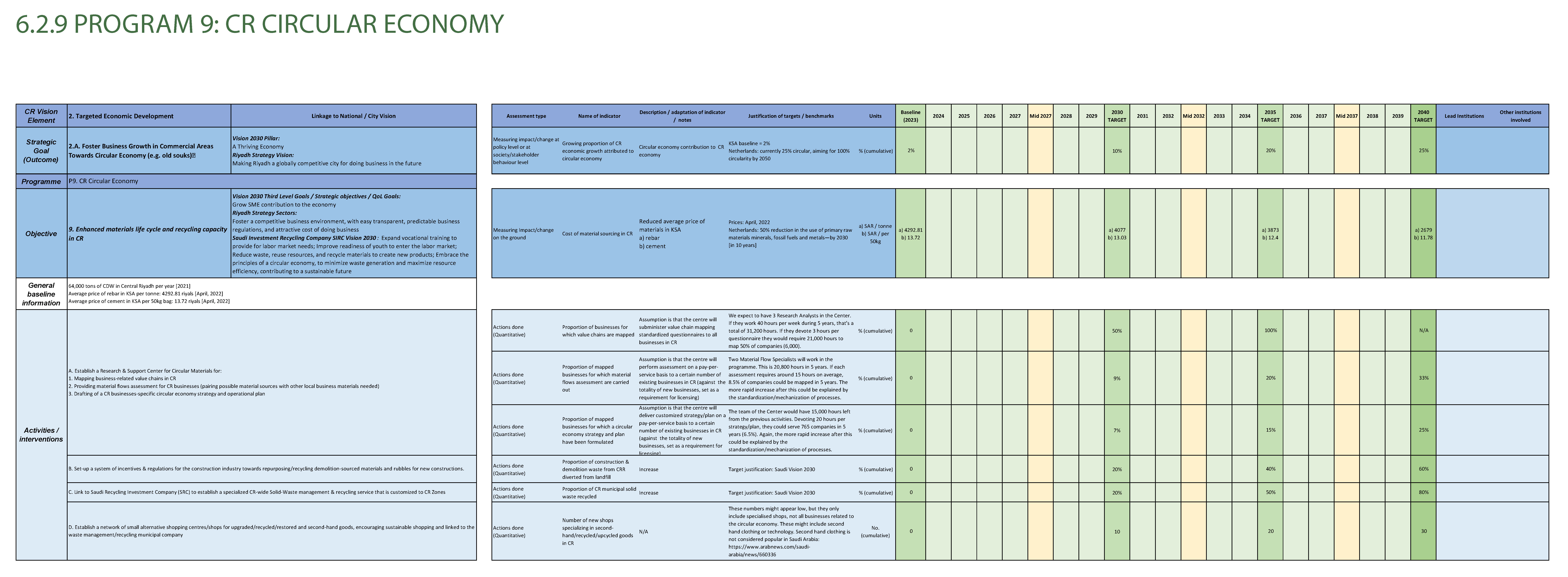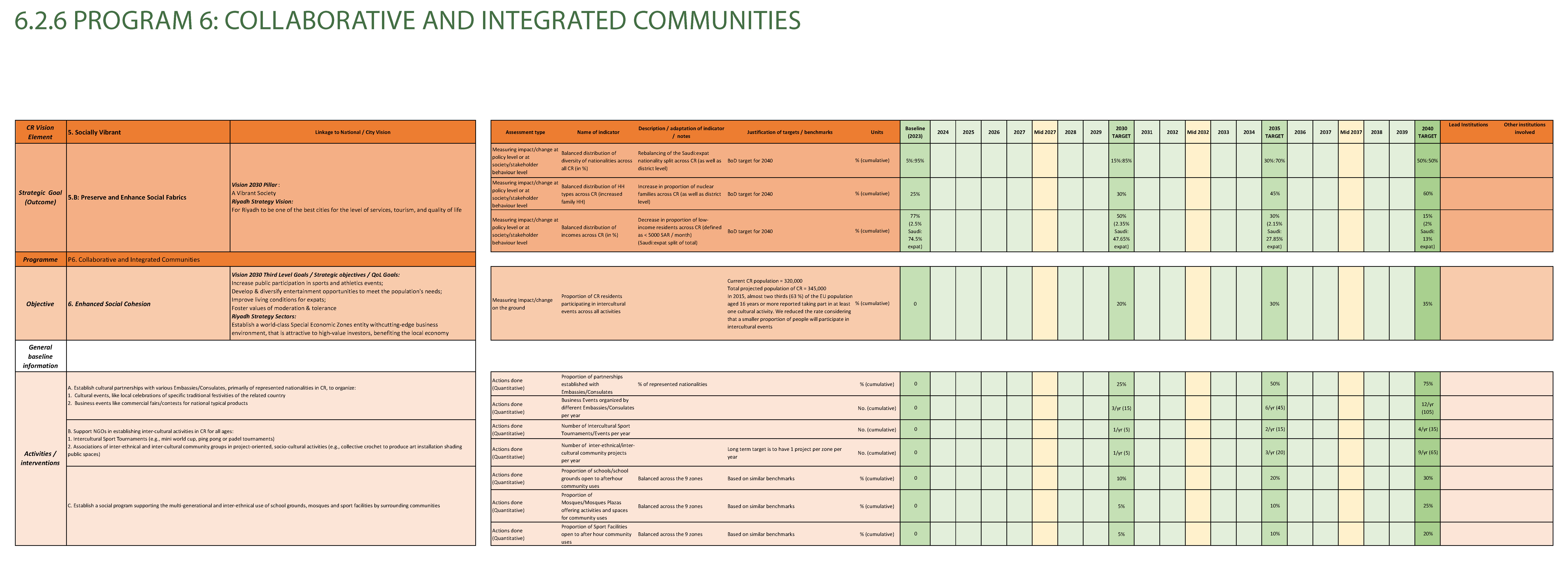SOCIOECONOMIC STRATEGY FOR CENTRAL RIYADH
Junoscape was part of the urban regeneration team at UN-Habitat, working directly with the Participatory Slum Upgrading Program and the UN office in Saudi Arabia, tasked with devising a socio-economic strategy for incoming development across 13 of Riyadh’s central districts (15 sq. km) as part of the country’s Vision 2030. The central aim of the strategy was to protect central Riyadh’s existing residents, 94% of which were classified as ‘expats’; almost 90% of households fell into the low income category. Preserving existing cultural capital and paving the way for a diverse new population were key priorities for the strategy, which was to align with the work of many other consultants and organisations within the consortium. The process included:
+ analysing and visualising survey results
+ socioeconomic mapping of the area
+ qualitative analysis of participatory planning workshops and focus groups
+ devising strategic outcomes, programmes and activities
+ projecting and assessing future risks
+ creating a monitoring and evaluation framework completing a logical framework








SOCIOECONOMIC STRATEGY FOR CENTRAL RIYADH
Junoscape was part of the urban regeneration team at UN-Habitat, working directly with the Participatory Slum Upgrading Program and the UN office in Saudi Arabia, tasked with devising a socio-economic strategy for incoming development across 13 of Riyadh’s central districts (15 sq. km) as part of the country’s Vision 2030. The central aim of the strategy was to protect central Riyadh’s existing residents, 94% of which were classified as ‘expats’; almost 90% of households fell into the low income category. Preserving existing cultural capital and paving the way for a diverse new population were key priorities for the strategy, which was to align with the work of many other consultants and organisations within the consortium. The process included:
+ analysing and visualising survey results
+ socioeconomic mapping of the area
+ qualitative analysis of participatory planning workshops and focus groups
+ devising strategic outcomes, programmes and activities
+ projecting and assessing future risks
+ creating a monitoring and evaluation framework completing a logical framework
+++








